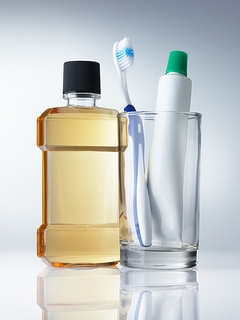Diet Soda vs. Regular Soda: Which is better for teeth?
August 29th, 2017

When most patients ask Dr. Karen Seder this question, they're thinking strictly about sugar content — cut out the bacteria-feeding sugar that's present in regular soda by opting for a diet soda and it will be better for your teeth. That seems logical, right? Well, there's a bit more to it than that. Let's take a closer look at how any kind of soda can affect your dental health.
Diet Soda – Why it can also lead to tooth decay
The main culprit in these drinks that leads to decay is the acid content. Diet sodas and other sugar-free drinks are usually highly acidic, which weakens the enamel on your teeth and makes them more susceptible to cavities and dental erosion. The level of phosphoric acid, citric acid, and/or tartaric acid is usually high in sugar-free drinks so it's best to avoid them.
Some patients also enjoy drinking orange juice or other citrus juices. These drinks are high in citric acid and have the same effect on the enamel of your teeth.
So what about regular soda?
We know the acidity of diet sodas and sugar-free drinks contributes to tooth decay, so what about regular soda? Like we alluded to earlier, regular soda is high in sugar — a 12 ounce can contains roughly ten teaspoons of sugar — and sugar feeds the decay-causing bacteria in the mouth. This also includes sports drinks and energy drinks, which are highly acidic and loaded with sugar too. So these drinks are a double-whammy of sugar and acidity your teeth and body simply don't need.
The problems caused by both diet and regular soda is exacerbated when you sip on them throughout the day. If you drink it all in one sitting, you won't be washing sugar and/or acids over your teeth all day long and your saliva will have a chance to neutralize the pH in your mouth.
The best beverages to drink and how to drink them
Drinking beverages that are lower in acid is a good step to take to keep your enamel strong. According to a study conducted by Matthew M. Rodgers and J. Anthony von Fraunhofer at the University of Michigan, your best bets are plain water, black tea or coffee, and if you opt for a soda, root beer. These drinks dissolved the least amount of enamel when measured 14 days after consumption of the beverage.
If you still choose to drink soda, diet soda, sugar-free drinks, or juices here are some other tips to lessen tooth decay:
- Drink your soda or acidic beverages through a straw to minimize contact with teeth
- Rinse with water immediately after consumption of the beverage
- Avoid brushing your teeth between 30 minutes to an hour after drinking the beverage as this has been shown to spread the acids before your saliva can bring your mouth back to a neutral pH
- Avoid drinks that have acids listed on the ingredients label
Still have questions about soda, sugar, and acid? Give our Chicago, IL office a call and we’d be happy to help!




 Website Powered by Sesame 24-7™
Website Powered by Sesame 24-7™